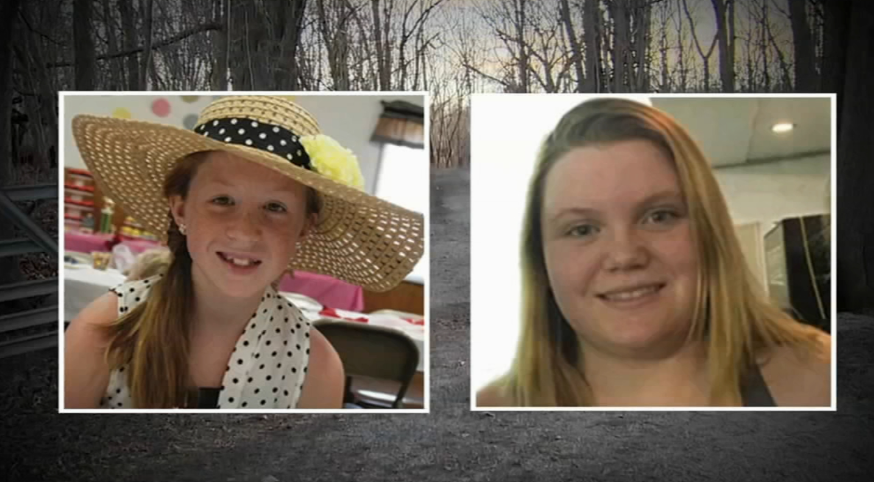Testimony continued Oct. 23 in the trial of Richard Allen in Delphi, Indiana.
Allen, 52, is accused of killing two teens who went missing Feb. 13, 2017, and were found dead the next day. He was arrested in 2022 and faces two counts of murder and two counts of murder while kidnapping in the deaths of Abigail “Abby” Williams and Liberty “Libby” German.
On Tuesday, jurors watched an expanded version of the infamous “Bridge Guy” video, marking the first time prosecutors showed footage of a man ― whom they alleged is Allen ― following the teens.
Journalists from the Indianapolis Star and the Lafayette Journal & Courier will cover the case as it moves through the judicial system.
Richard Allen’s 2017 phone not among 23 of his devices law enforcement analyzed
When Indiana State Police Sgt. Christopher Cecil extracted data from 23 of Richard Allen’s devices in November 2022, the month after his arrest for the killings of Abby and Libby, he found nothing tying Allen to the teens’ deaths, he testified Wednesday afternoon. Cecil found only that someone had used Allen’s devices to look up the girls on the Internet; there was no direct communication with or about the girls.
But Cecil said the phone Allen had used in 2017, when the girls were killed, wasn’t one of the devices he had analyzed, implying Allen was using a different phone when he was arrested five and a half years after the killings. Prosecutor Nick McLeland noted that the 2017 phone’s unique ID differed from Allen’s phone in 2022.
At this remark, Allen sat and shook his head in frustration, a bitter smile crossing his face. He then leaned over to his defense attorney Andrew Baldwin to say something quietly. His defense did not contest McLeland’s comments, however.
Cecil’s main role as a prosecution witness Wednesday was to discuss the data he extracted and analyzed from Libby’s phone to build a chronological timeline of events on Feb. 13, 2017, the day the girls were killed, and the following day.
Between about 4:06 p.m. Feb. 13 and 4:33 a.m. Feb. 14, Libby’s phone received no short message service — SMS — messages. But the phone did receive iMessages, which iPhone users can send between one another using Internet connection instead of cellular service, as well as phone calls and Facetime calls.
At 4:33 a.m. Feb. 14, a flood of about 15 SMS messages reached Libby’s phone. This indicates that some connection had been established with local cellphone towers at that time, not that the messages were all sent at 4:33 a.m.
Cecil said he doesn’t have an explanation for why all those messages were received then.
Among other information Cecil was missing is why, during his data extraction from Libby’s phone, he did not find a now-infamous photo of Abby crossing the Monon High Bridge taken at an estimated time of 2:07 p.m. on Feb. 13. Libby used Snapchat to take several other photos that Cecil found, but he couldn’t locate this one from the cache of saved pictures. Instead, he had to estimate the time the widely circulated photo seen by Libby’s friends and family was taken.
“I don’t have an answer,” Cecil said after jurors shared several questions about how Snapchat photos are stored.
Libby received text message from grandmother: ‘You need to call me now’
Two years after Delphi’s Abby Williams and Libby German were murdered, their families set up photos and candles for a community prayer remembrance at Delphi United Methodist Church 1796-US-421. on Wednesday, Feb. 13, 2019.
Wednesday afternoon began with testimony from Sgt. Christopher Cecil, a former digital forensics expert for the Indiana State Police who provided jurors with a timeline of the girls’ movements based on an analysis of the contents of Libby’s iPhone.
At 1:38 p.m. on Feb. 13, 2017, Libby called her father, named “Daddy-o” in her contacts list. Derrick German testified last week that Libby called him to ask him to pick them up from the Monon High Bridge trail later that afternoon.
Officials initially believed that the last signal the phone received was about 10 p.m. on Feb. 13, Cecil said. But a second analysis conducted earlier this year using more advanced programs found that the last signal was actually received at 4:33 a.m. on Feb. 14, Cecil testified.
At that time, Libby’s phone received about 15 text messages at once.
Cecil said there was no indication that Libby’s phone had been turned off, and it’s unclear why the messages all came at once.
Pathologist: Abby was cut once on the neck. Libby was cut at least four times.
Dr. Roland Kohr, a semi-retired forensic pathologist who conducted the autopsies on the teens on Feb. 15, 2017, said Abby had a 2-inch laceration across her neck that damaged the left jugular vein. Kohr said the cut appeared to have been made from right to left.
Libby had at least four, maybe five, overlapping wounds on her neck, Kohr testified. Two of the cuts, one on each side, were lethal and hit arteries ― meaning blood would have spread several feet. Both of her hands were also bloody, Kohr said, suggesting that she might have grabbed her neck.
Kohr, who said he had performed between 7,700 and 7,800 autopsies in his career, estimated the teens lived four to 10 minutes after their throats were slashed, although they likely lost consciousness before dying.
Kohr also said there were no visible signs that the girls were sexually assaulted.
He testified this does not mean there was no sexual contact, just that “no trauma was left.”



